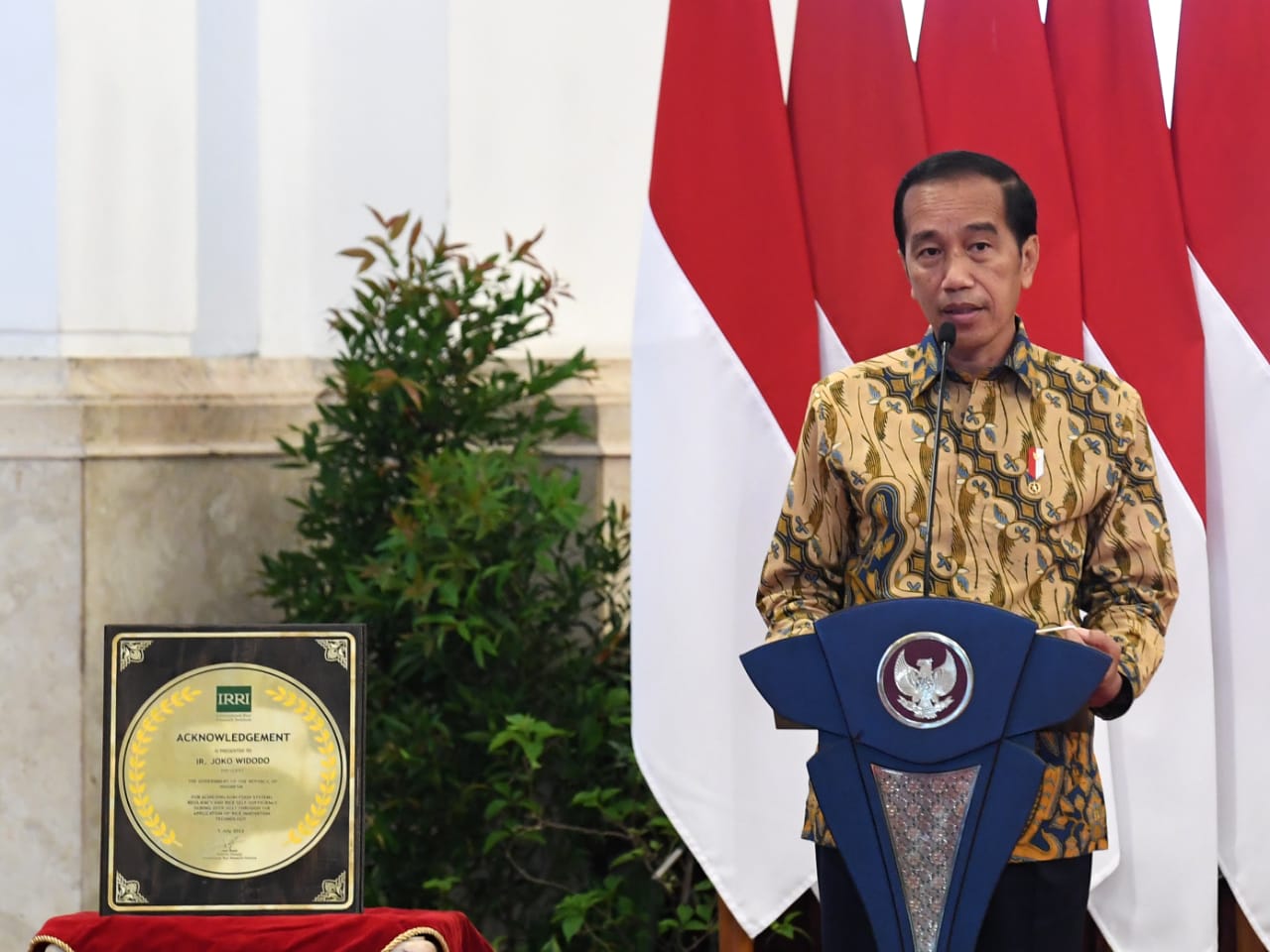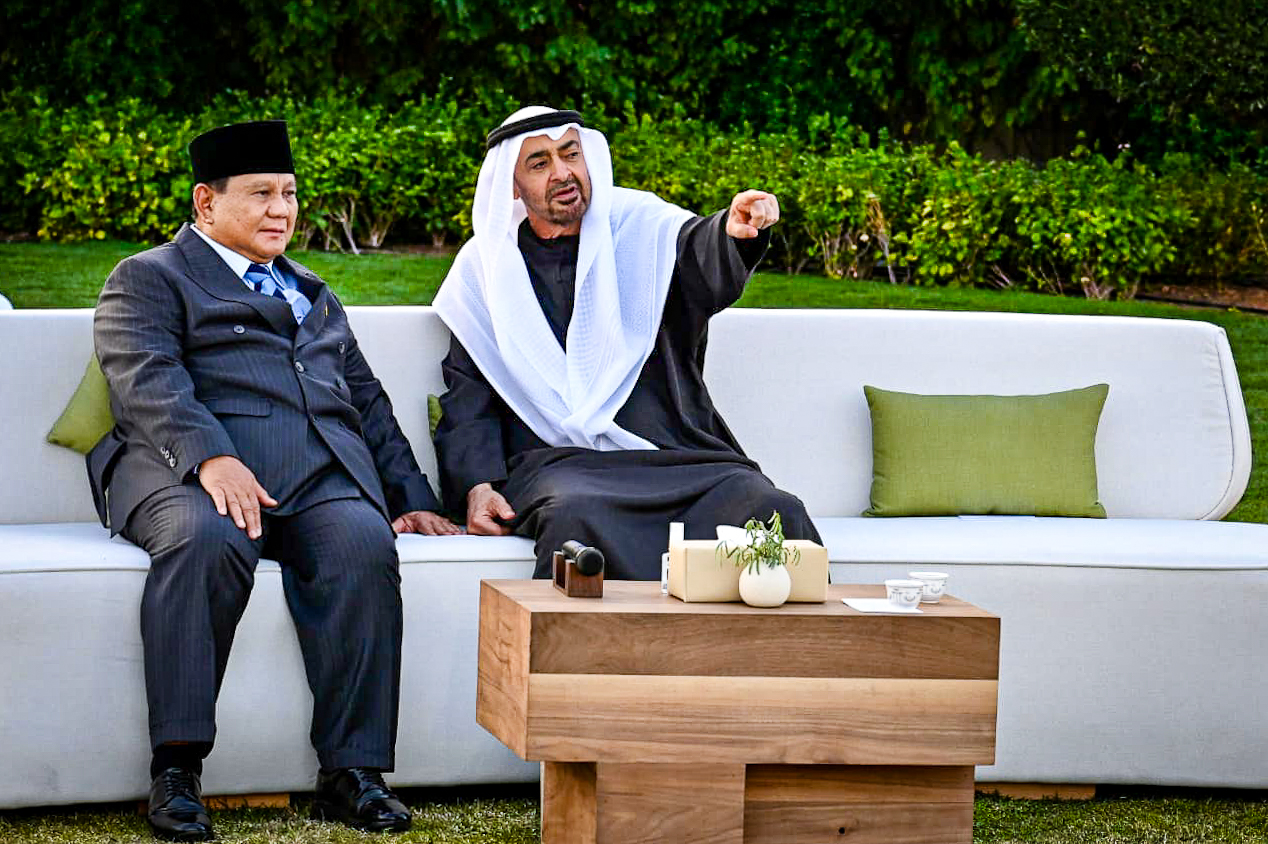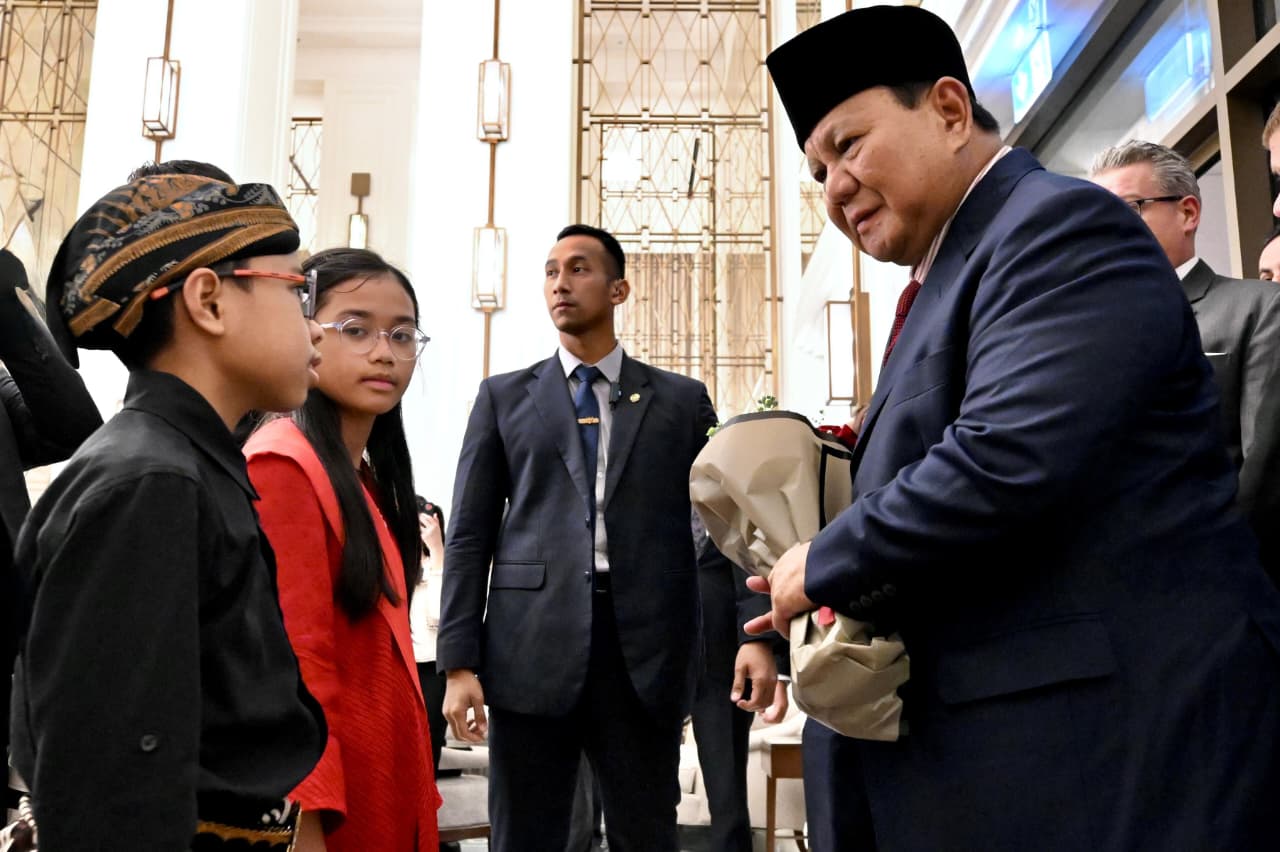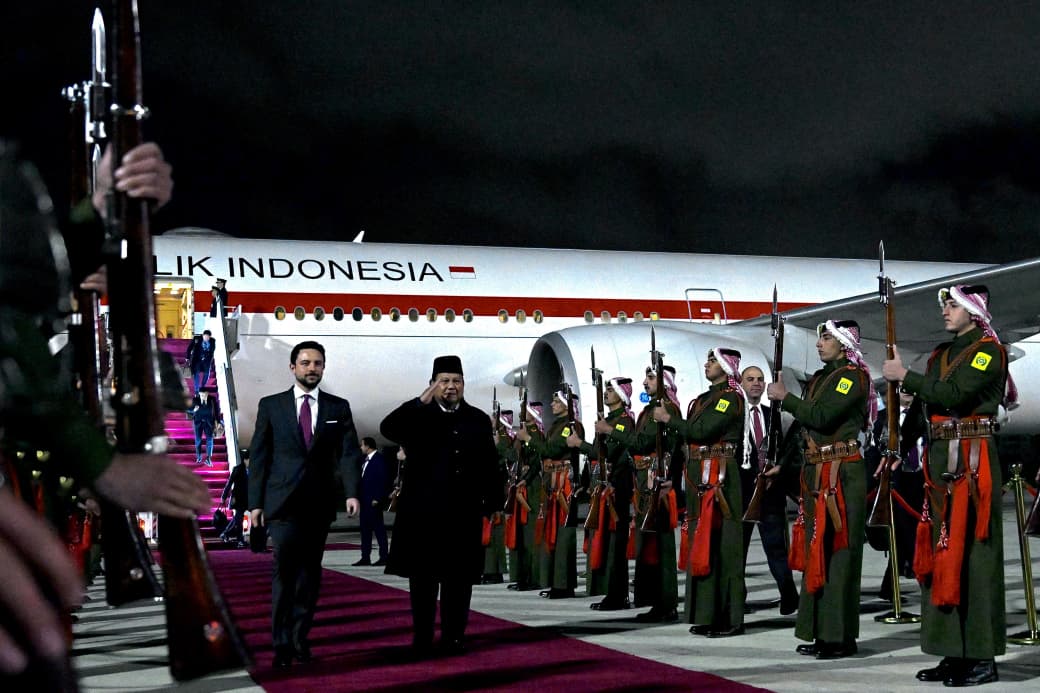Gov’t Reinforces Commitment to Food Self-Sufficiency

President Jokowi delivers his remarks after receiving an award from Director General of the International Rice Research Institute (IRRI), at the Presidential Palace, Jakarta, Sunday (08/14). (Photo by: BPMI Presidential Secretariat/Kris)
The Government has renewed its commitment to improving national food security amid the global food crisis.
“In the midst of global food crisis, the Government is committed to continuously increasing production, ensuring food sufficiency in the country, and at the same time contributing to world food sufficiency,” President Joko “Jokowi” Widodo said after receiving an award from the International Rice Research Institute (IRRI) for Indonesia’s good food security system and food self-sufficiency for the 2019-2021 period, at the Presidential Palace, Jakarta, Sunday (08/14).
According to President Jokowi, the Government has built several agricultural infrastructures, including dams, reservoirs, and irrigation networks to support increasing national agricultural production.
In addition to infrastructure development, the Government is also utilizing prime rice varieties and carrying out intensification and extensification programs so Indonesia can achieve rice self-sufficiency and a surplus in rice production for the past three years.
“Based on the calculation conducted by the Central Statistics Agency (BPS), our rice supply on the ground was recorded the highest at the end of April 2022 at 10.2 million tons,” the President said.
On that occasion, the President expressed hope that local farmers will not only produce agricultural commodities that are consumed by the communities but also commodities that enter the export market.
“We must also continue to encourage the move so that when production increases, we can start entering export markets,” he said, adding that agricultural diversification is critical.
“We have to start with other types of food. Yesterday, we started to expand the planting of sorghum in East Nusa Tenggara, then the planting of corn in several provinces,” he added.
With large-scale corn production, he said, the imports of corn can be reduced from 3.5 million tons to 800 thousand tons.
“This is a huge leap. We hope that if we stay focused, we will no longer import corn in the next two or three years. Just like rice. It has been three years since we did not import rice,” he remarked. (TGH/UN) (RIF/LW)








